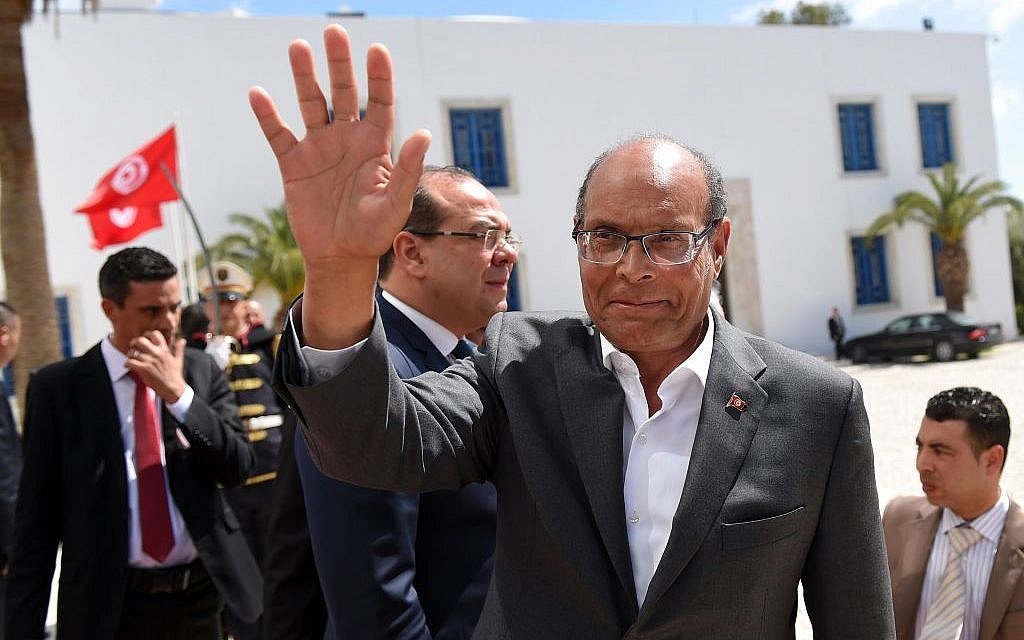The Crisis of Authoritarianism in Tunisia and the Arab World
Photo by Associated Press
“We have lost the battle but we have not yet lost the war”
ZANE NAGEL: These were the words of the first democratically elected President of Tunisia, Dr. Moncef Marzouki, when he visited Georgetown University’s Prince Alwaleed Bin Talal Center for Muslim-Christian Understanding on October 2nd, 2023, to discuss the rise of authoritarianism in North Africa and the Middle East as well as the current political and economic state of Tunisia.
Marzouki, Tunisia’s first president after the Arab Spring, was elected by the Constituent Assembly of Tunisia and served from 2011 to 2014. Since leaving office, Marzouki has been a prominent human rights activist and critic of current Tunisian President Kais Saied’s decision to suspend the Tunisian Constitution in 2021 and consolidate power through the passing of a new constitution during a highly boycotted 2022 vote. In 2021, Marzouki was sentenced to four years in prison by the Tunisian government for “undermining the external security of the state.” He currently lives in exile in Paris.
Marzouki began his remarks by discussing the Arab Spring’s two waves, the first in 2011 and the second, less prominent wave between 2016 and 2019. Marzouki deemed both waves to be generally unsuccessful, noting the continuation of authoritarianism across the region. In Tunisia, he discussed how the public desired freedom, economic prosperity, and political stability, but have instead been left with the increasingly dictatorial rule of President Kais Saied.
Marzouki further noted the international reactions to the Arab Spring and specified the fears of Russia —a nation that he said did not want to see a “wave of hope and democracy” in the Middle East.
Marzouki does not know what the future holds for Tunisia, but he did speculate that there could be a “new wave” of revolution at some point in both the nation and the region as a whole. He worries that this new wave, fueled by angry young protesters, could be less peaceful than the first iteration if protesters are met by fearful, reactionary governments.
Marzouki believes that the Arab Spring movement is still near its beginnings and that while those in favor of democracy have “lost the battle” they have “not just yet lost the war.”
He then moved to discussing the current economic situation in Tunisia and what he perceives to be the root causes and possible solutions. Marzouki specifically noted that changing the underlying economic conditions and offering political stability would spur international investments in the Tunisian economy. Another necessary step is management of Tunisia’s ballooning debt, which Marzouki pointed out could be resolved by Tunisia working with European nations to secure deals for debt forgiveness and tackle the symptoms that initially led to the debt crisis.
He then discussed the state of the Tunisian political opposition. Currently, the opposition is less organized and he believes the opposition would require more unity in order to counter Saied’s authoritarian policies. Marzouki specifically noted that the divide in Tunisia is not between Islamists and secularists, as is commonly thought, but is now between democrats and anti-democrats. He is optimistic that the opposition will coalesce, but also acknowledged that this process will take time.
Drawing on both his experience in elected office as well as a longtime democracy and human rights activist during the dictatorship of Zine Ben Ali, President Marzouki presented a nuanced perspective on the Arab Spring’s long-term impacts and the current dual crises of economic disarray and authoritarianism in Tunisia. As current President Kais Saied continues to tighten his grip on power, Marzouki’s voice will continue to be important in guiding the future leaders of the Tunisian democratic movement.
Zane Nagel is a Sophomore in the SFS. He is a writer for On the Record.

